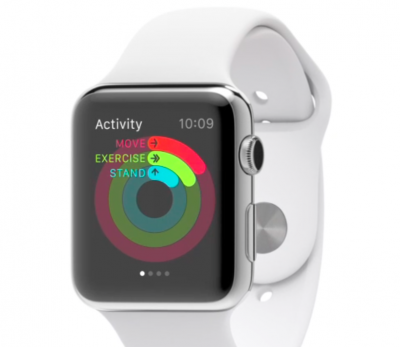In the Digital Age, each of us is transforming in varying degrees into a personal brand. Through social media and other online activity, we establish our own personal brand through a deeply considered presentation of of our personal attributes, beliefs, wants, needs and tastes. And we take comfort in knowing that our own personal brand is unlike any other on the planet.
Marketers, too, take great comfort in mining all this data we put out there. A sales pitch becomes a whole lot easier when you know so much about a potential customer’s wants, needs and tastes. But what if you have a brand new product category? How can people want something that doesn’t really exist yet?
This was the dilemma facing Apple as they prepared to launch the Apple Watch. Sure, there were competitors who had their own versions of the smartwatch for sale, but none of them made much of a dent in the global marketplace. There was clearly no pent-up demand for this product. So, how do you go about selling it?
Apple’s Familiar Solution to Marketing the Apple Watch
Apple’s solution was simple:
1. Capitalize on the strength of the Apple brand.
2. Keep the promises vague and let consumers attach their own meanings to the device.
Apple is the biggest and most robust brand on earth. In 2014 they came close to $200 billion in sales worldwide. They know that there are legions of consumers who are so loyal to to the brand that they will purchase anything the company churns out.
But knowing that the Apple Watch is a largely unknown product without any built-in demand, Apple’s pitch became, in essence, that this is a product that will suit your personal brand, one way or another.
Check out the original press release from the Fall of 2014 which announced the Apple Watch’s arrival. Look how many times they use the word “personal”. “Apple today unveiled Apple Watch — its most personal device ever”, which allows you to send “something as personal as your own heartbeat”. CEO Tim Cook says “It’s the most personal product we’ve ever made”, while designer Jony Ive says “We’ve created an entire range of products that enable unparalleled personalization”.
The document goes on to say that the Apple Watch is “customizable for personal expression… personalized in appearance and capability” and can “suggest personal, realistic goals, reward fitness milestones and keep you motivated.”
Talk about getting personal. As for the subtext, it’s this:
There’s no one thing to make the Apple Watch a must-have product. But we will give you a variety of interesting and desirable things, and surely one of them will intrigue and entice you personally.
Apple Has Kept Their Vague Promises With the Apple Watch
On that note, Apple has definitely delivered. Are you interested in your personal health and fitness? You’re going to find the HealthKit features hard to resist. It includes heart rate sensing, activity tracking, calories burned and a reminder to stand up after you sit too long.
Does your personal brand include showing off a fine piece of jewelry for the purposes of style, or status, or both? Well the Apple Watch will suit you too. Most observers say that Apple’s design expertise has come to the fore again, and that the watch units plus the myriad watch band choices make for a very beautiful device, far ahead of its competitors stylistically. A recent 12-page ad in Vogue magazine really hits the style points of the Watch home.
If your personal brand includes being a gadget or tech geek, the Apple Watch has something for you too. The innovative touch screen, plus the Taptic Engine, which provides a range of tactile alerts to your wrist, are genuine developments in consumer technology, and they both offer a glimpse into the future of touch-based electronic communication.
Remote automation control, less intrusive message notifications, Apple Pay transactions — these are other functions that might turn someone’s crank. Here’s the thing, though: There is no killer app. There is no one great reason or screaming need to buy an Apple Watch. However, depending on your own personal brand, there is probably a strong reason why you, personally, will want one.
When you think about it, this has been Apple’s modus operandi for quite some time. When the iPhone first hit the shelves in 2007, there was the same vagueness coming from Apple about what exactly this device could do. In 2010, there was a similar pattern to the introduction of the iPad. They couldn’t really say why exactly you needed one. And no two people use them in exactly the same way. It’s a personal thing, right?
So how does the Apple Watch fit into your personal brand? Or are you happy to save the $500 and remain Apple Watch-free?
